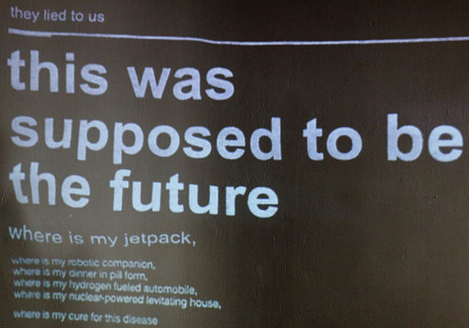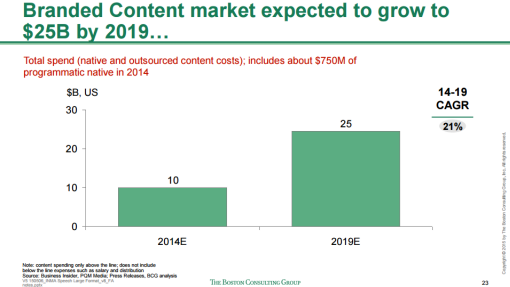“By a name I know not how to tell thee who I am,” laments Romeo to Juliette in one of Shakespeare’s most memorable scenes. A similar complaint about the inadequacy of names is often uttered by today’s “futurists”. Be they futurologists, foresight consultants or futurist thinkers by any other name, of what import is their choice of one term over another?
Formerly fashionable futurologists

Futurologists were all the rage back in the 1960s, ‘70s and ‘80s. In History and Futurology (1966), German professor Ossip Flechtheim saw futurologists as the future-thinking counterparts of historical sociologists. Little did he know that the role of a futurologist would soon burst the boundaries of sociology and become multi-disciplinary in scope.
Given that most “ologies” are specific, testable branches of knowledge, some futures thinkers dislike the name “futurologist”. In an article for Futures journal, futurist Ziaudinn Sardar writes, “The pretension that exploration of the future is, or can be, an exact field of inquiry is both naïve and dangerous.” He points out that people who study alternative futures may be more accurately termed mellontologists, from the Greek word for time, mellon. Unfortunately, the association of mellon with big, juicy fruits means that potential mellontologists might not be taken seriously.

However, not all “ologies” are the precise fields of inquiry that Sardar envisages. One field in particular comes to mind: astrology. Let’s face it, the term “futurologist” has a whiff of the astrologist about it. Connotations of crystal balls and fortune telling render the term obscure for many people. Perhaps this impression of pseudo-science comes from blending the common term “future” with the formal term “ologist”.
Futurists gain momentum in the present
For some futures thinkers, “futurist” has similar flaws to “futurologist”. Maree Conway writes, “Futurist is an accepted title and many of my colleagues use it, but for me it brings with it connotations of certainty and predictability that are unhelpful.” Futurist Ross Dawson agrees with Conway that the future isn’t certain or predictable. Nonetheless, he states in a blog post, “I am completely comfortable with the term futurist, even if some perceive it as lacking credibility.” Both Dawson and Conway appreciate that “futurist” is less esoteric and academic than many equivalent terms. Plus it is easier to say and has overtaken “futurologist” in the popularity stakes.
However, some people dislike the label “futurist” because it evokes the Italian Futurists, radical artists of the Futurism movement in the early twentieth century. Futures thinker and author Andres Agostini wrote a complaint entitled “Why The Universal Usage Of The Terms ‘…Futurism…’ And ‘…Futurist…’ Is Unimpeachably Wrong As Per Three World-Class Dictionaries!” Nonetheless, the rising popularity of the term “futurist” has since prompted Agostini to style himself as a futurist. Yet the ongoing surfeit of words to describe futures thinkers implies that calling oneself a futurist still has its shortcomings.

Foresight and its practitioners, researchers and consultants
The question remains: can using an alternative name to “futurist” or “futurologist” provide a helpful distinction? Maree Conway believes that yes, to some extent, it can. “I call myself a strategic foresight practitioner and researcher rather than a futurist,” Conway writes. “This may seem like semantics, but for me it’s an important point.” Conway wants to distinguish herself from multi-disciplinary futurists who, like Ross Dawson, “are asked to talk about the future of x or y or z and they can put together an amazing presentation to do just that”. While she respects the work of these futurists, her chosen role is “more a guide than a facilitator, more a mentor than a speaker and more a critical friend than an expert with the answers”.
For one-on-one or small group contexts, the term “foresight practitioner” or “foresight consultant” may well be appropriate. But for large-scale international audiences, the broader term “futurist” seems more fitting. Within foresight agencies, adding “researcher”, “manager” or another such term to “foresight” can help to customize and clarify a person’s specific role. Nonetheless, it might be ironic for futures thinkers to cling onto rigid job titles if such titles continue to decline in the future.
Opting instead for a generalized name like “foresighter” or “foresighteer” is not without its setbacks. Most foresight-related names suggest “foreseeing something that is not too far and can be actually pinned down”, complains Ziauddin Sardar. For those like Sardar who stress the uncertainty of the future, it is worrying that foresighteers can create the “illusion” of providing a “product” that “comes wrapped with wisdom”. This perception stems from the fact that foresight lacks a plural in English, resulting in name derivatives with a singular focus. In contrast, names relating to “future” or “futures” can evoke open possibilities.

Zooming in versus zooming out
Having a specific focus can prove a double-edged sword for labels from “global trends consultant” to “future strategist” or “scenario planner”. Although these names are more precise than “futurist”, they can be restrictive. For example, the uptake of “scenario planners” is blinding many organizations to other methods of exploring the future. But do abstract alternatives—like “visionary” and “luminary”—take a pluralist vision too far?
A luminary is a broad term for someone who inspires or influences others, often outside a futures context. A visionary, however, can have a deceptively narrow definition. French consulting service proGective clarifies that “Unlike the futurist, the visionary has a strong bias—political or otherwise. He/she believes in a given vision of the future, seeks to convince the decision-makers of that vision, and empowers them to make informed decisions with that vision in mind.” This starkly contradicts the “alternative futures” approach of numerous futurist thinkers, including many “horizon scanners” who aim to resist hype and maintain objectivity.
Value in validity and variety
If the futures industry investigated its internal future of naming, it could clear up some widespread misperceptions and avoid an identity crisis. A futurist facing the public should not have to suffer the dilemma of Romeo that “My name…is hateful to myself, because it is an enemy to thee…” Nonetheless, diversity in approach can strengthen the futures field, especially when insights from different types of futurist thinkers are connected. As Dawson reminds us, “However you describe the role, there is clearly value in helping people to think usefully about the future.”
Image sources: David Kernohan, Boston Public Library, Sibe Kokke and Times Up Linz

The real role of education is to teach us to play
By Ross DawsonEarlier this year I gave the opening keynote at the annual thought leadership forum of Chartered Accountants Australia and New Zealand, with the conference this year titled “Future Proofing the Profession: Preparing Business Leaders and Finance Professionals for 2025”.
An interesting article titled The uncertain future of work reviewed some of the ideas presented by speakers at the event. On my session it reports:
Read more →
What people value in creating better lives: differences around the world
By Ross DawsonThe OECD has created a wonderful interactive visual map of the world, showing the Better Life Index – what people value most in their lives – in different countries around the world.
Source: OECD
It is fascinating to see what people value the most around the world. When we look at cultural differences between countries, the simple question of what people value show deep differences, and strong insights into national identity.
Read more →
Futurist, futurologist, foresight practitioner, visionary, foresighteer: what’s in a name?
By Vanessa Cartwright“By a name I know not how to tell thee who I am,” laments Romeo to Juliette in one of Shakespeare’s most memorable scenes. A similar complaint about the inadequacy of names is often uttered by today’s “futurists”. Be they futurologists, foresight consultants or futurist thinkers by any other name, of what import is their choice of one term over another?
Formerly fashionable futurologists
Futurologists were all the rage back in the 1960s, ‘70s and ‘80s. In History and Futurology (1966), German professor Ossip Flechtheim saw futurologists as the future-thinking counterparts of historical sociologists. Little did he know that the role of a futurologist would soon burst the boundaries of sociology and become multi-disciplinary in scope.
Given that most “ologies” are specific, testable branches of knowledge, some futures thinkers dislike the name “futurologist”. In an article for Futures journal, futurist Ziaudinn Sardar writes, “The pretension that exploration of the future is, or can be, an exact field of inquiry is both naïve and dangerous.” He points out that people who study alternative futures may be more accurately termed mellontologists, from the Greek word for time, mellon. Unfortunately, the association of mellon with big, juicy fruits means that potential mellontologists might not be taken seriously.
However, not all “ologies” are the precise fields of inquiry that Sardar envisages. One field in particular comes to mind: astrology. Let’s face it, the term “futurologist” has a whiff of the astrologist about it. Connotations of crystal balls and fortune telling render the term obscure for many people. Perhaps this impression of pseudo-science comes from blending the common term “future” with the formal term “ologist”.
Futurists gain momentum in the present
For some futures thinkers, “futurist” has similar flaws to “futurologist”. Maree Conway writes, “Futurist is an accepted title and many of my colleagues use it, but for me it brings with it connotations of certainty and predictability that are unhelpful.” Futurist Ross Dawson agrees with Conway that the future isn’t certain or predictable. Nonetheless, he states in a blog post, “I am completely comfortable with the term futurist, even if some perceive it as lacking credibility.” Both Dawson and Conway appreciate that “futurist” is less esoteric and academic than many equivalent terms. Plus it is easier to say and has overtaken “futurologist” in the popularity stakes.
However, some people dislike the label “futurist” because it evokes the Italian Futurists, radical artists of the Futurism movement in the early twentieth century. Futures thinker and author Andres Agostini wrote a complaint entitled “Why The Universal Usage Of The Terms ‘…Futurism…’ And ‘…Futurist…’ Is Unimpeachably Wrong As Per Three World-Class Dictionaries!” Nonetheless, the rising popularity of the term “futurist” has since prompted Agostini to style himself as a futurist. Yet the ongoing surfeit of words to describe futures thinkers implies that calling oneself a futurist still has its shortcomings.
Foresight and its practitioners, researchers and consultants
The question remains: can using an alternative name to “futurist” or “futurologist” provide a helpful distinction? Maree Conway believes that yes, to some extent, it can. “I call myself a strategic foresight practitioner and researcher rather than a futurist,” Conway writes. “This may seem like semantics, but for me it’s an important point.” Conway wants to distinguish herself from multi-disciplinary futurists who, like Ross Dawson, “are asked to talk about the future of x or y or z and they can put together an amazing presentation to do just that”. While she respects the work of these futurists, her chosen role is “more a guide than a facilitator, more a mentor than a speaker and more a critical friend than an expert with the answers”.
For one-on-one or small group contexts, the term “foresight practitioner” or “foresight consultant” may well be appropriate. But for large-scale international audiences, the broader term “futurist” seems more fitting. Within foresight agencies, adding “researcher”, “manager” or another such term to “foresight” can help to customize and clarify a person’s specific role. Nonetheless, it might be ironic for futures thinkers to cling onto rigid job titles if such titles continue to decline in the future.
Opting instead for a generalized name like “foresighter” or “foresighteer” is not without its setbacks. Most foresight-related names suggest “foreseeing something that is not too far and can be actually pinned down”, complains Ziauddin Sardar. For those like Sardar who stress the uncertainty of the future, it is worrying that foresighteers can create the “illusion” of providing a “product” that “comes wrapped with wisdom”. This perception stems from the fact that foresight lacks a plural in English, resulting in name derivatives with a singular focus. In contrast, names relating to “future” or “futures” can evoke open possibilities.
Zooming in versus zooming out
Having a specific focus can prove a double-edged sword for labels from “global trends consultant” to “future strategist” or “scenario planner”. Although these names are more precise than “futurist”, they can be restrictive. For example, the uptake of “scenario planners” is blinding many organizations to other methods of exploring the future. But do abstract alternatives—like “visionary” and “luminary”—take a pluralist vision too far?
A luminary is a broad term for someone who inspires or influences others, often outside a futures context. A visionary, however, can have a deceptively narrow definition. French consulting service proGective clarifies that “Unlike the futurist, the visionary has a strong bias—political or otherwise. He/she believes in a given vision of the future, seeks to convince the decision-makers of that vision, and empowers them to make informed decisions with that vision in mind.” This starkly contradicts the “alternative futures” approach of numerous futurist thinkers, including many “horizon scanners” who aim to resist hype and maintain objectivity.
Value in validity and variety
If the futures industry investigated its internal future of naming, it could clear up some widespread misperceptions and avoid an identity crisis. A futurist facing the public should not have to suffer the dilemma of Romeo that “My name…is hateful to myself, because it is an enemy to thee…” Nonetheless, diversity in approach can strengthen the futures field, especially when insights from different types of futurist thinkers are connected. As Dawson reminds us, “However you describe the role, there is clearly value in helping people to think usefully about the future.”
Image sources: David Kernohan, Boston Public Library, Sibe Kokke and Times Up Linz
Six compelling reasons we should have driverless cars
By Ross DawsonYesterday morning I was interviewed on Channel 9 Mornings about driverless cars. You can view the segment by clicking on the image below.
While daytime TV isn’t an ideal form to discuss all of the ins and outs of big issues, we did start to discuss some of the advantages of driverless cars. Some of these are:
Read more →
The future is bright for futurists: 5 crucial characteristics of their craft
By Vanessa CartwrightFuturists are in a fortunate position: their insights will be sought after as long as we believe the future will be different from today. In the present age of rapid change, global demand for futurists is booming. Powerful leaders at high-profile companies like Google, Microsoft and Visa regularly consult with futurists.
However, as more and more people aspire to become futurists, it is important to clarify what a futurist actually does. The overarching role of a futurist is not to provide outsourced thinking about the future, says leading futurist Ross Dawson. What, then, does Dawson see as the role of a futurist? Read on to discover five key facets of this exciting profession.
1. Helping people think for themselves
Forecasting is not a futurist’s primary goal. In fact, predictions can hinder people’s capacity for independent thinking. As Ross Dawson states, the role of a futurist involves helping everyone to “become their own futurist, to think more broadly, to be open to different ideas”. Over the past fifty years, futurists have differentiated themselves from their less credible historical counterparts, partly by extending their role beyond forecasting. Today’s futurists are less likely to say what the future will be than to describe how or why a future could appear, asserts the Association of Professional Futurists (APF). As Dawson has told the Australian Financial Review, “A prediction can have negative value, by misleading people, by taking away all the uncertainties and the possibilities.”
2. Inspiring leadership
A true futurist aims to encourage leadership at all levels. In a keynote speech delivered before the Dutch Future Society, Dawson examined the role of the futurist as leader. Futurists “need to help others to think forward and in turn to act better today”, Dawson noted. This is vital because “we are at a critical juncture in human history, when actions we take—or do not take—today will shape our collective future to an extraordinary degree”.
3. Transcending boundaries
The most important aspect of thinking about the future, Dawson emphasizes in a blog post, is that “the future transcends boundaries”. Whether you are planning for change in a company, an industry, a geographical region or any other domain, “the key issue is how its boundaries will change and what new possibilities will come from outside. However limited the scope of your interest, you need to consider almost everything, across society, technology, business, and the evolution of humanity.”
4. Provoking new ways of thinking
For people who struggle to embrace change, the insights of a futurist may not always be welcome. Therefore, the role of a futurist is sometimes that of a provocateur, Dawson remarks in a discussion with futurist Gerd Leonhard. Provoking people into taking action can be easier for external futurists than it is for in-house futurists, because the latter may struggle to transcend the boundaries and expectations of their industry. As Dawson states, “For a futurist it is uniquely valuable to come from outside the given system, be it in personal background, industry experience, or geographical location.”
5. Managing information overload
In today’s highly networked world, the sheer volume of data can be overwhelming. In this context, a futurist can help by making sense of information: filtering it, connecting ideas, and communicating them in an accessible format. This process can assist time-poor business decision makers to look beyond the short-term future and make tangible adaptations to change. Whether drawing out the obvious or transcending the obvious, a futurist can remind us, Dawson asserts, that “The future is not predetermined. By understanding the nature of change we can act to create a better future.”
The role of a futurist, therefore, involves helping others to shape a bright future by teaching them how to make well-informed decisions today.
Image source: Alice Popkorn
In a world of peer learning the opportunities flow to talent and those who share
By Ross DawsonI recently gave the closing keynote at the Lectora User Conference 2015 in Nashville, Tennessee, which brought together users from around the world of the Lectora e-learning authoring platform.
My keynote on Embracing the Future looked at the broad trends shaping our world, and how they were shaping the world of education in particular. Peer learning is a fundamentally important trend today, describing how people learn increasingly from their peers rather than formal teachers. Indeed, the leading edge of any domain of study is driven by peers who share what they discover on the edges of their discipline.
One of the stories I told in my keynote was how a young Mexican man has been amply rewarded for his talent and his propensity to share, rather than formal education.
Image: Jordi Muñoz, Chris Anderson and Jon Callaghan of 3D Robotics Credit: Christopher Michel
Read more →
Managed Crowdsourcing for the Enterprise: the Growth of Private Talent Clouds
By Steve BynghallService marketplaces are now offering managed crowdsourcing designed for the enterprise, providing access to a pre-selected crowd through a private web-based interface.
One of the over-arching themes of crowdsourcing is its slow march towards the mainstream. One aspect of this is penetration into the larger enterprise, with crowdsourcing a technique embedded into key business processes.
The hesitation of the enterprise
It’s a shame that more global companies don’t use service marketplaces as the crowd provides a mind-boggling range of services which could be utilised.
In practice some of the reasons for the reticence of larger organisation to use these platforms lies in the processes put in place by enterprise support functions to minimise risks and reduce costs. Measures involving procurement departments and HR functions often mean that there are approval steps to navigate, lists of preferred suppliers to adhere to and pre-vetting of candidates to undertake.
Read more →
A taxonomy of branded content and its role in the future of media
By Ross DawsonImmediately after my opening keynote on Creating the Future of News at INMA World Congress in New York last week was a very interesting plenary session from Neil Zuckerman of Boston Consulting Group (BCG) on branded content in the future of media, drawing on a recent multi-country study they have done. I had already emphasized the importance of branded content in my keynote, so it was a great segue into his detailed analysis.
Zuckerman began by running through the severe challenges for the news industry, going on to highlight branded content as the next source of growth for the industry. Below are a few slides from his excellent presenatation.
BCG sees branded content growing at a 21% rate over the next 5 years. I believe it is likely to grow faster than this.
 Source: Boston Consulting Group
Source: Boston Consulting Group
Read more →
Applying platform strategy to Facebook Instant Articles
By Ross DawsonProbably the most reported aspect of my opening keynote at INMA World Congress in New York last week on Creating the Future of News was my response to an audience question about how publishers should think about Facebook’s new offer to publishers to host their articles for mobile viewing.
An article in Sydney Morning Herald today titled Beware Facebook creep, publishers warned opened by describing the new Facebook Instant Articles and went on to quote me:
Read more →
Lessons from the transformation of Washington Post since its acquisition by Jeff Bezos
By Ross DawsonThe opening keynote on the second day was from Steve Hills, President of Washington Post, who spoke about the state of Washington Post since its acquisition in October 2013 by Amazon.com founder Jeff Bezos. He shared some fascinating insights that are highly relevant for any news publisher looking to create the future.
The big idea of what they are aiming to create is “A national edition optimized for mobile and for interestingness with a simple UX designed for stunning storytelling that is less work for the user to consume.” Bezos thinks it is critical to reduce ‘cognitive overhead’ for their readers.
Read more →